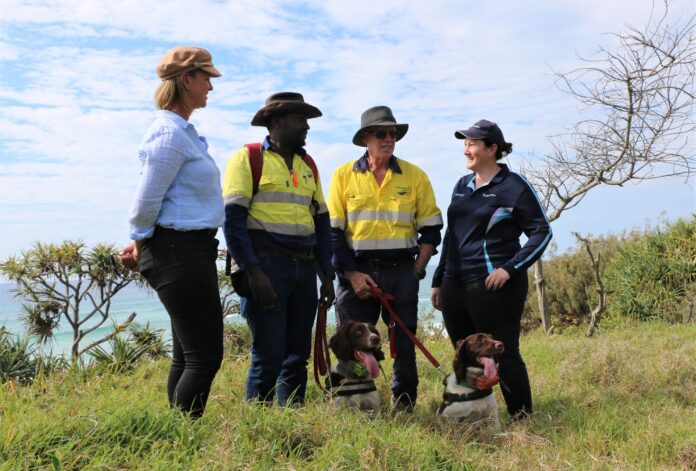Their actions have saved thousands of native wildlife, and where they go the cameras follow.
Conservation dogs are back on the Sunshine Coast, with up-and-coming canine Cooper taking the lead and his protege Hakka in tow.
Their target is a rampant feral predator: European red foxes.
Along with their handlers Tom Garrett and Agaba Hannington, the dogs’ current mission is sniffing out dens where foxes would pair and breed, as part of Sunshine Coast Council’s ongoing Coastal Fox Control Program.
The program, now in its ninth year, aims to decrease fox populations at a time when they are most active and to reduce their predation on vulnerable native species.
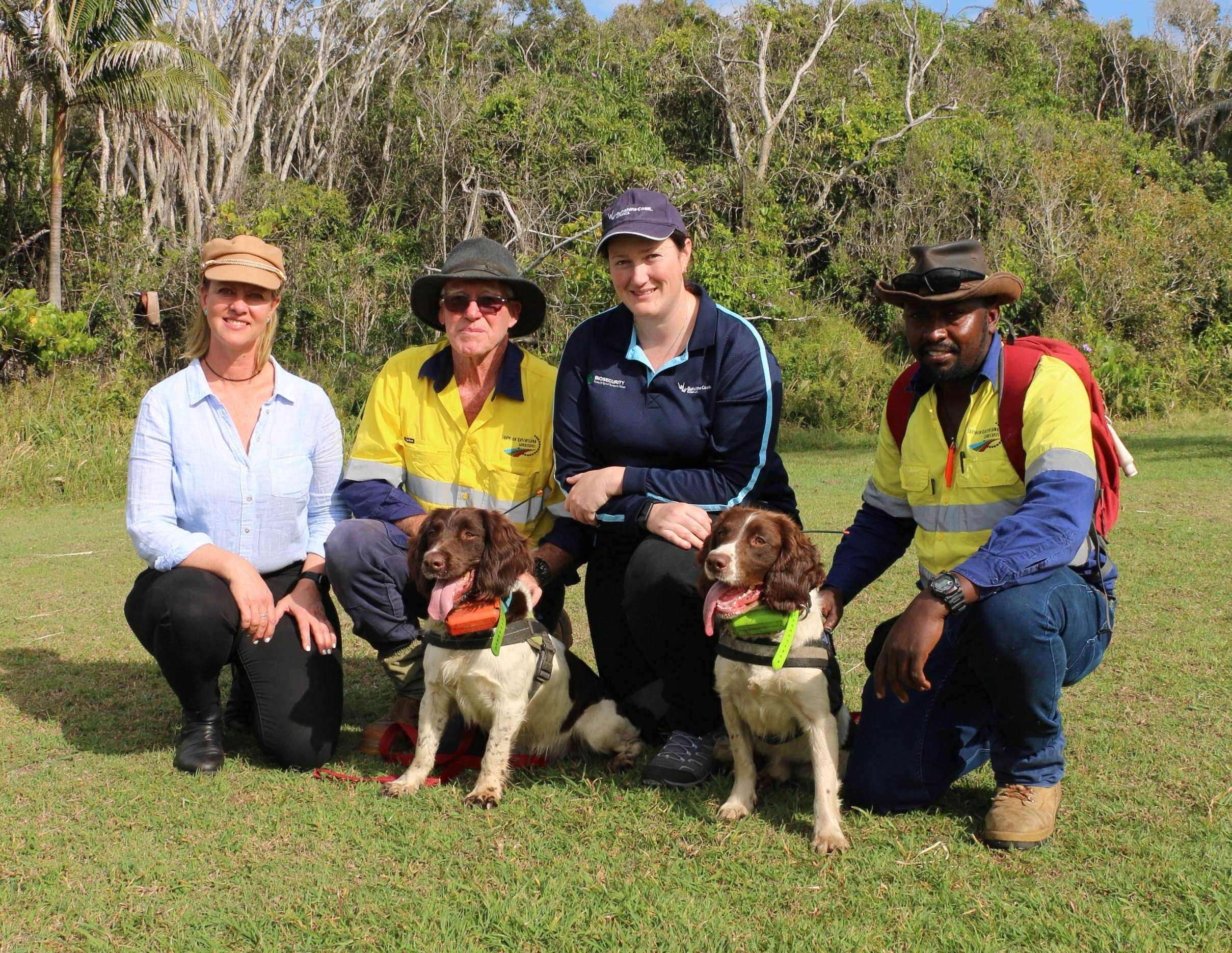
These species include the spotted tail quoll, water mouse and eastern ground parrot, plus the endangered green and loggerhead turtles at the crucial egg and hatchling stage.
Council estimates the program has saved the lives of 11,311 native small mammals, 31,391 birds, 10,612 reptiles including turtles and 699 macropods since 2015, based on studies of fox diets in the region.
The control program targets areas between Peregian Beach and the Maroochy River, including council-managed and state-managed lands as well as some private properties.
Cooper and Hakka have been given an exemption to enter and be off-leash in a prohibited zone to carry out their conservation work.
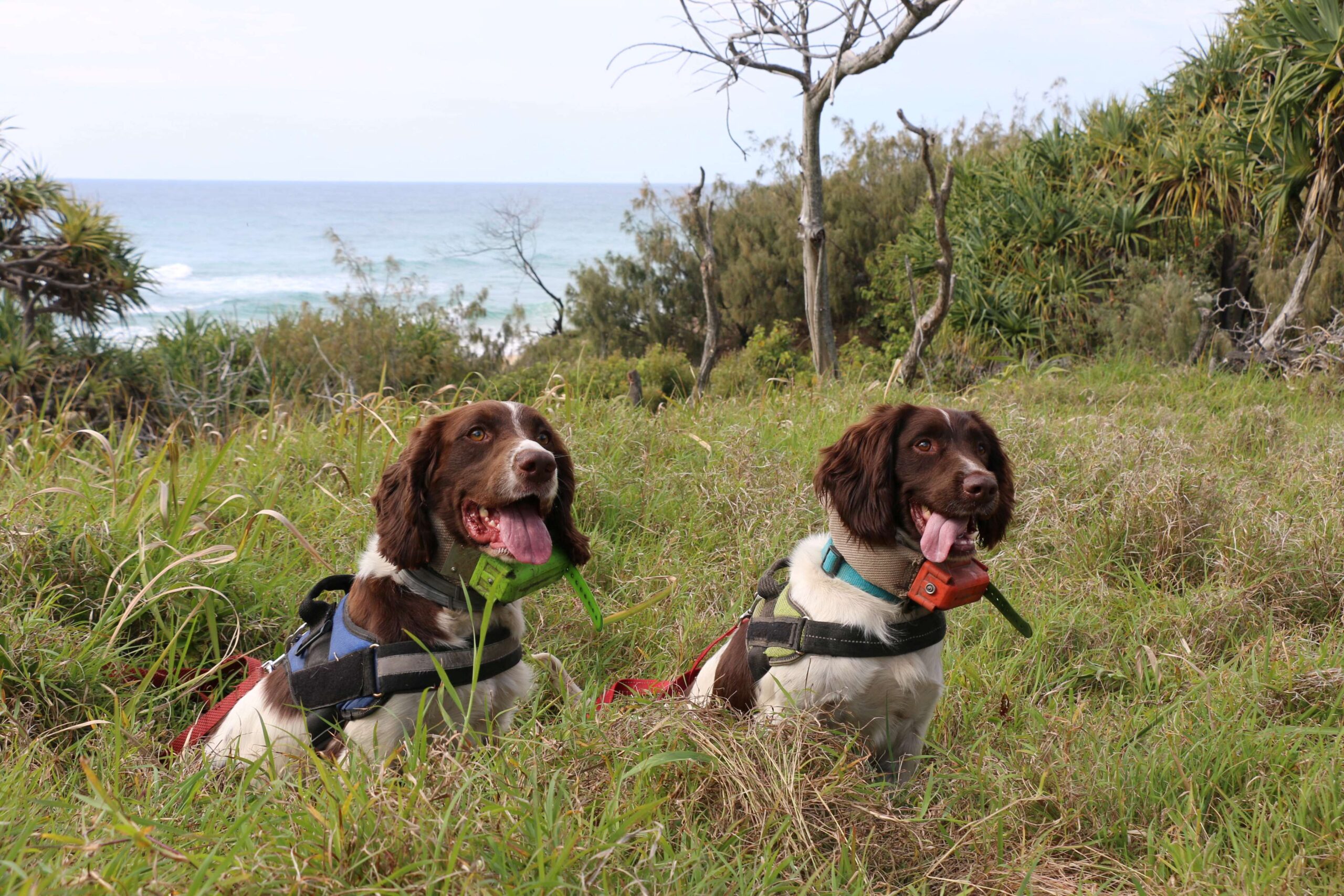
In 2022, veteran conservation dog Rocky, an English springer spaniel, found 194 fox dens, with 18 being actively used by breeding pairs.
Environment Portfolio councillor Maria Suarez said Rocky was a living legend for his work in the region and around Australia, and wished him a relaxing time as he moved into retirement.
“How many people can say they’ve saved so many native animals?” she said.
“These conservation dogs can sniff out dens where foxes pair and breed, and can tell their handler when a fox is using the den.
“It’s an extremely targeted approach with almost no risk to native species.
“During the denning season, conservation dogs are key to managing fox numbers before they breed.”
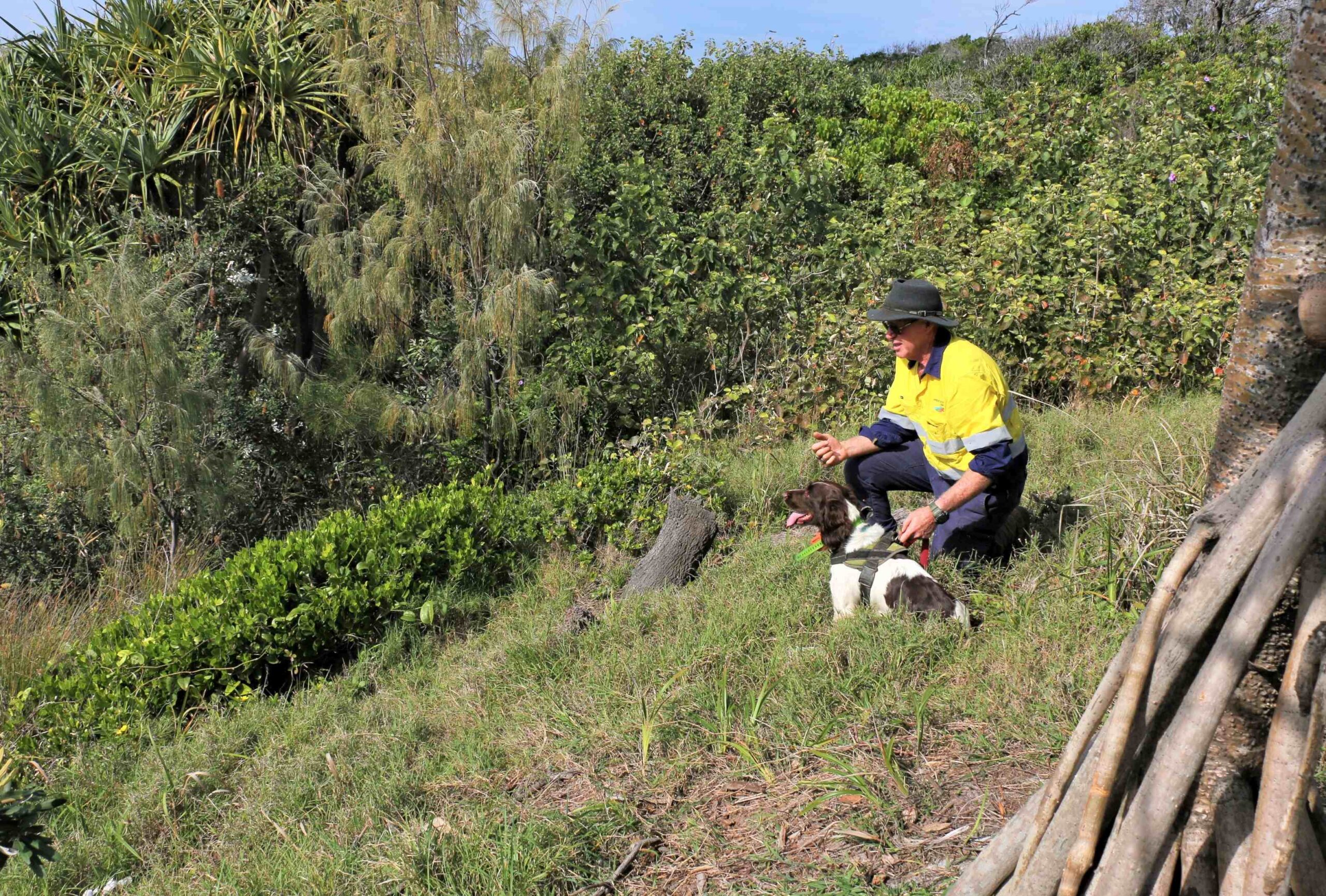
Rocky is almost ready to put his paws up after working as a conservation dog alongside his trainer and handler Mr Garrett for about eight years – or 56 dog years.
Ms Suarez said it would mark the end of a distinguished career, with Rocky’s efforts across Australia regularly making news bulletins and leaving a conservation legacy in our region.
“This work to reduce fox predation has helped our native species to recover, and we’ve now had confirmed sightings of the endangered spotted tail quoll within the fox control program area,” she said.
“Before those sightings, this species had not been confirmed anywhere in our region for 70 years.”
Foxes found in active dens are euthanised under council’s policies and procedures, and in line with Queensland’s animal welfare laws.
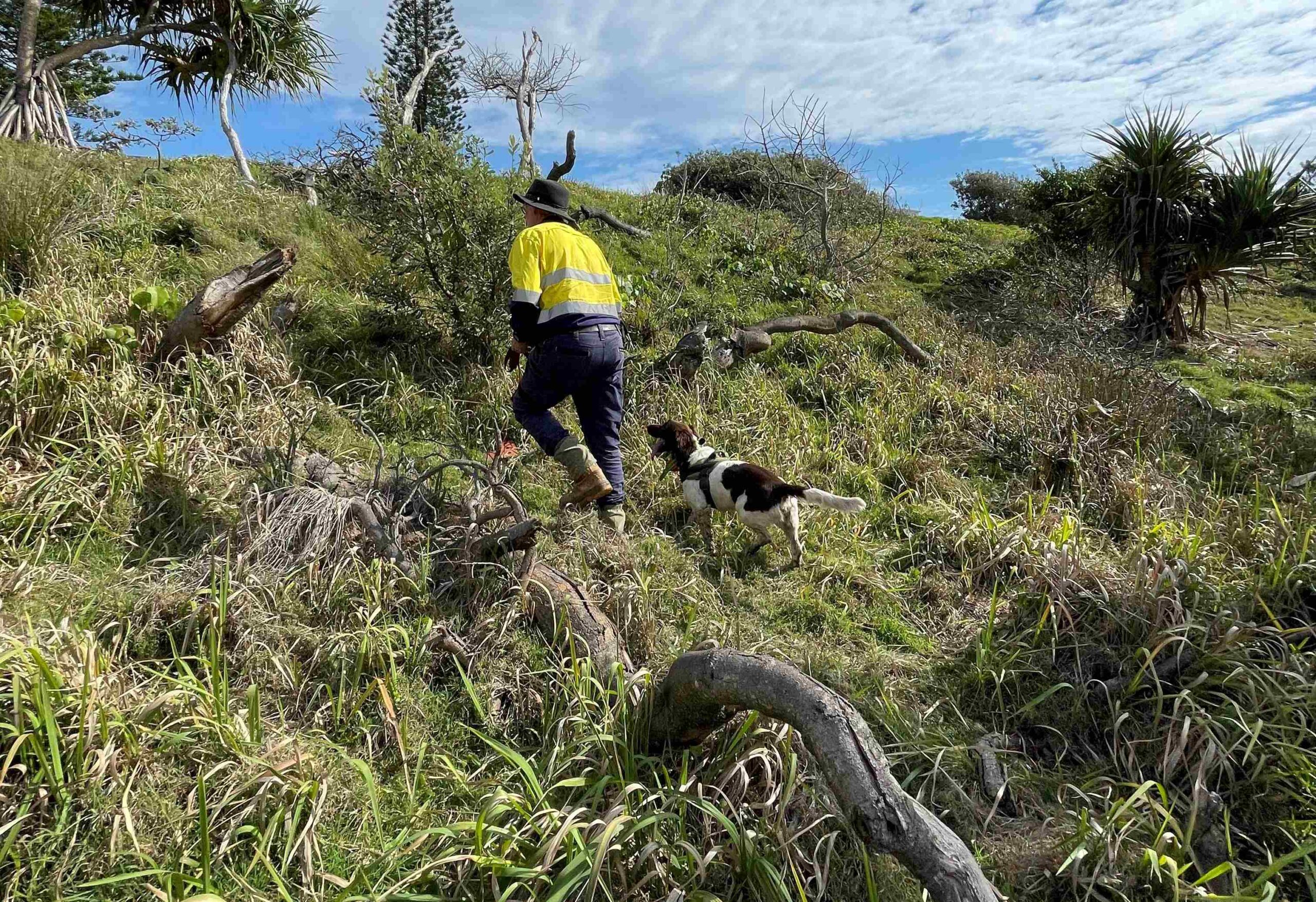
Council officers also use soft-catch foothold traps and chemical controls in the program area between March and November.
Program areas are clearly identified with warning signs at all entrances and residents living near the program areas are notified in advance.
It is residents’ responsibility to ensure their pets’ safety and not let them roam.
If you spot a suspected fox den in the program area, report it to council on 5475 7272. You can also view the fact sheet to learn how to identify a fox den here.
The European red fox was deliberately introduced to Australia for recreational hunting in 1855 and has become a significant contributor to native animal decline across the nation.
The animal is a restricted pest under the Queensland Government Biosecurity Act 2014.
Under the act, managing biosecurity, including invasive animals and plants, is a key responsibility of council and every Sunshine Coast resident.
More information about the program is available here.
Scroll down to SUBSCRIBE for our FREE news feed, direct to your inbox daily.


